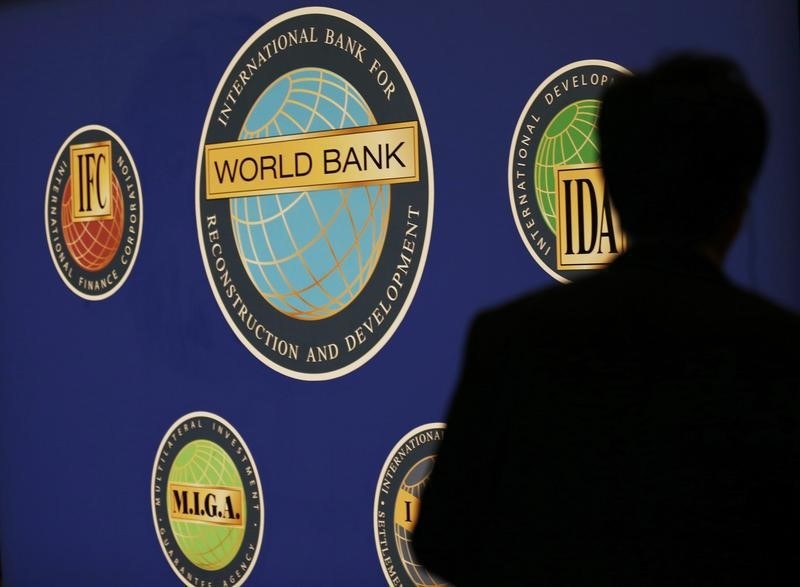CAIRO (Reuters) - The World Bank will provide the first $1 billion tranche of a $3 billion loan to Egypt after parliament approves the government's economic programme, World Bank vice president Hafez Ghanem said at a news conference late Tuesday.
Parliament is expected to pass the program in April.
Egypt has been negotiating billions of dollars in aid from various lenders to help revive an economy battered by political upheaval since the 2011 revolt and ease a dollar shortage that has crippled import activity and hampered recovery.
The lender had agreed to provide the first $1 billion in December but is waiting for the government's economic programme, which outlines the broad strokes of its reform plans, to be passed by parliament.
The government presented a programme to parliament in late March that aimed to reduce the budget deficit while protecting the poor.
The World Bank told Reuters in December that the first tranche was focused on "10 prior actions for policy and institutional reforms" already implemented. The second and third tranches are linked to additional reforms the government plans.
A long-delayed Value Added Tax (VAT) that has yet to be implemented but was included in the government programme was one of the reforms agreed to as part of the first tranche, Ghanem said.
Ghanem said that there would not be specific conditions placed on future tranches but highlighted certain changes the lender would like to see, such as a shift in food subsidy policy away from reduced prices to direct cash transfers for the poor.
Egypt has delayed a number of difficult reforms, from a VAT that would increase government revenues and a civil service law that would trim the country's public workforce, to an ambitious plan to wean the country off costly energy subsidies that has since been scaled back.
Egypt's economy is currently growing at around 4.2 percent with a budget deficit of about 11.5 percent, the prime minister said last month.
Saudi Arabia, along with other Gulf oil producers, have pumped billions of dollars, including grants, into Egypt's flagging economy since the army toppled President Mohamed Mursi of the Muslim Brotherhood in 2013 after mass protests against his rule.
But Egypt has said it would rely less on grants from its neighbours moving forward and would focus instead on attracting foreign investment that could relaunch its dollar starved economy.
Last week it signed an agreement with Saudi Arabia to set up a 60 billion Saudi riyal ($16 billion) investment fund among other investment agreements including an economic free-zone to develop Egypt's Sinai region.
